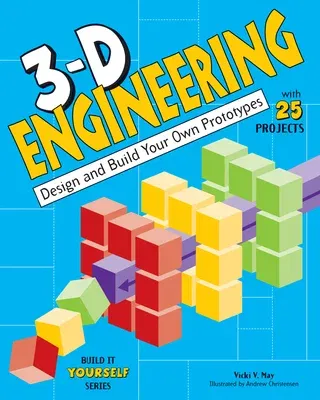Vicki V May
(Author)3-D Engineering: Design and Build Your Own PrototypesHardcover, 17 November 2015

Qty
1
Turbo
Ships in 2 - 3 days
In Stock
Free Delivery
Cash on Delivery
15 Days
Free Returns
Secure Checkout

Reading Age
Ages: 9-12
Grade Levels
4-7
Part of Series
Build It Yourself
Part of Series
Build It Yourself (Hardcover)
Print Length
128 pages
Language
English
Publisher
Nomad Press (VT)
Date Published
17 Nov 2015
ISBN-10
1619303116
ISBN-13
9781619303119
Description
Product Details
Audience:
Ages: 9-12
Author:
Book Format:
Hardcover
Country of Origin:
US
Date Published:
17 November 2015
Dimensions:
25.91 x
20.83 x
1.02 cm
Educational Level:
Grade Levels: 4-7
Illustrator:
ISBN-10:
1619303116
ISBN-13:
9781619303119
Language:
English
Location:
VT
Pages:
128
Publisher:
Weight:
453.59 gm